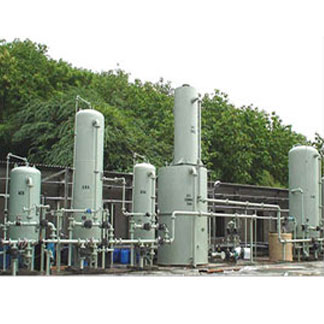
Rs. 32000.00
( Price inclusive of all taxes )
Availability: In stock
Due on our huge industry experience, we are providing our customers a finest quality range of Demineralisation (DM) Water Plant. Our offered plant is used for processing of mineral water for soft drinks and beer. Help in making the water entirely free from bacteria, virus attacks and other impurities, these plants are manufactured under the supervision of highly qualified professionals by using top class raw material and leading-edge technology. Offered in various specifications to fulfill the different needs of our customers, these Demineralisation (DM) Water Plant is available at the most reasonable prices.
Demineralized water also known as Deionized water, water that has had its mineral ions removed. Mineral ions such as cations of sodium, calcium, iron, copper, etc and anions such as chloride, sulphate, nitrate, etc are common ions present in water. Deionization is a physical process which uses specially-manufactured ion exchange resins which provides ion exchange site for the replacement of the mineral salts in water with water forming H+ and OH- ions. Because the majority of water impurities are dissolved salts, deionization produces a high purity water that is generally similar to distilled water, and this process is quick and without scale buildup.
De-mineralization technology is the proven process for treatment of water. A DM Water System produces mineral free water by operating on the principles of ion exchange, Degasification, and polishing. Demineralized Water System finds wide application in the field of steam, power, process, and cooling.
Raw water is passed via two small polystyrene bead filled (ion exchange resins) beds. While the cations get exchanged with hydrogen ions in first bed, the anions are exchanged with hydroxyl ions, in the second one .